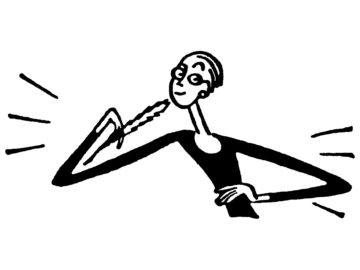Ian Frazier in The New Yorker:
 Janet Malcolm, who wrote for this magazine for fifty-eight years, died this week in New York City, just a half mile or so from the building on East Seventy-second Street where she spent most of her childhood. Her family came from Prague in 1939, when she was almost five and her sister, Marie, was two and a half. Starting kindergarten with very little English, she had to guess at what was going on; every day, at the end of class, the teacher would say, “Goodbye, children.” She knew what “goodbye” meant but thought “children” must be the name of one of her classmates, and she hoped that one day the teacher would choose her, and say, “Goodbye, Janet.” Her father, Joseph, who changed his name from Wiener to Winn, was a psychiatrist and a neurologist; she later described him as “the gentlest of men.” Joan, his wife, worked at Voice of America and other jobs and ran the house.
Janet Malcolm, who wrote for this magazine for fifty-eight years, died this week in New York City, just a half mile or so from the building on East Seventy-second Street where she spent most of her childhood. Her family came from Prague in 1939, when she was almost five and her sister, Marie, was two and a half. Starting kindergarten with very little English, she had to guess at what was going on; every day, at the end of class, the teacher would say, “Goodbye, children.” She knew what “goodbye” meant but thought “children” must be the name of one of her classmates, and she hoped that one day the teacher would choose her, and say, “Goodbye, Janet.” Her father, Joseph, who changed his name from Wiener to Winn, was a psychiatrist and a neurologist; she later described him as “the gentlest of men.” Joan, his wife, worked at Voice of America and other jobs and ran the house.
Janet acquired the language in no time, not knowing how she did it. For the rest of her life, she spoke in an un-showy New York accent, like a quieter, non-gangster Bogart. As a teen-ager, she sometimes fooled around with it, pulling out the stops on the vowels, going into full dems-and-dose mode, just to see people’s surprise—at this slim and elegant girl suddenly becoming as loud as a “Guys and Dolls” showstopper. She accepted her own brilliance as no big deal. The precision with which she saw the world must have kept the grownups on their toes. She went to the High School of Music & Art and then to the University of Michigan, where she edited Gargoyle, the college humor magazine. She appears at the top of its masthead as “Managing Editor: J. W. Malcolm.” She had married Donald Malcolm, a fellow U. of M. student two years older than she was. The magazine’s articles often ran without bylines. An anonymous piece in the “anti-arts issue” titled “The Bobsey Twins Meet Ezra Pound” shows equal familiarity with the girl-detective mystery genre and early modernist poetry. Like Chekhov, Janet started out writing humor.
More here.
